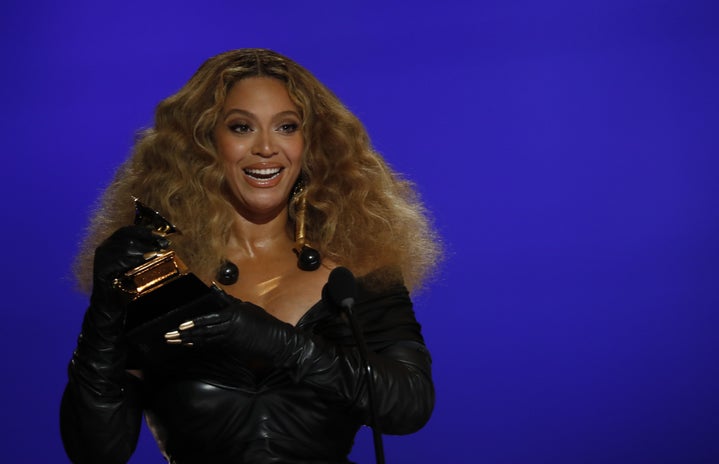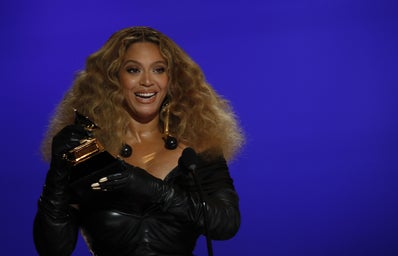The 2024 GRAMMY Awards’ nominations were released to the public on Nov. 10 and amongst fan-favorites and snubbed artists, there were three new categories. The Recording Academy announced back in June that the 66th GRAMMY Awards would feature three new categories including Best African Music Performance, Best Alternative Jazz Album, and Best Pop Dance Recording. These new categories come after the 65th GRAMMY Awards had five new categories, a few being Best Americana Performance, Best Spoken Word Poetry Album, and a Special Merit Award for Best Song For Social Change. Along with the announcement of the three new categories, the Recording Academy CEO Harvey Mason Jr. released a statement stating, “These changes reflect our commitment to actively listen and respond to the feedback from our music community, accurately represent a diverse range of relevant musical genres, and stay aligned with the ever-evolving musical landscape.” The GRAMMY Awards and the Recording Academy have certainly gotten active feedback from the audience and the artists over the years after past decisions, in what one might call a controversial history.
The first GRAMMY Awards was held in May of 1959 and since then the award ceremony and the Academy have been accused of numerous controversies including alleged sexism, racism, and general bias towards artists. In 2020, the first female president and CEO of the Recording Academy, Deborah Dugan, was abruptly suspended without warning causing the GRAMMY Awards to endure days of public criticism. According to Daily Targum, Dugan “accused the award show’s Recording Academy of gender and race discrimination, as well as, sexual misconduct, both before and after her suspension.” Dugan also claimed to have sent an email to human resources “expressing concern of board members’ behaviors and voting irregularities.”
Dugan and the Recording Academy ultimately reached a private settlement surrounding her 2020 termination, 10 days before the 2020 GRAMMY Awards ceremony.
Daily Targum acknowledged in the same article that this wasn’t the first time the GRAMMY Awards and the Academy have had public criticism due to sexism claims. During the 2018 GRAMMY Awards, Alessia Cara was the only woman to receive a solo award across all categories. The Recording Academy’s former CEO, Neil Portnow, was questioned about the circumstances surrounding that decision in a press conference and responded with, “I think it has to begin with women who have the creativity in their hearts and souls, who want to be musicians, who want to be engineers, producers and want to be part of the industry on the executive level, to step up because I think they would be welcome.” In the present day, women have dominated the 2024 GRAMMY nominations in major categories, but still find themselves behind in others. Cardi B just became the first solo female artist to win Best Rap Album at the 2019 GRAMMY Awards even though nine female-led albums were previously nominated since 1996.
The GRAMMYs and the Academy have also faced public controversies due to artists speaking out against them. In 2020, after the 2021 GRAMMY Awards nominations were released, Abel Tesfaye, publicly known as The Weeknd, spoke out against the Academy after his name and music were absent from all 80 categories, despite a successful year for his career. The Weeknd publicly pledged to permanently boycott the GRAMMYs ceremony and tweeted “The Grammys are still corrupt. They owe me, my fans, and the industry transparency…” A representative of the singer “indicated that he hoped that other artists would be added to the boycott and that this opportunity would be seized for the GRAMMYs to develop ‘correctly, finally’.” The lack of nominations for The Weeknd did indeed turn heads among the music industry and their audience as his “latest album After Hours is considered one of the best works of the year 2020 on numerous charts,” with the single, “Blinding Lights”, becoming “the first song in history to remain in the top 10 of the Billboard Hot 100 chart throughout the year.”
For at least the last three years, the GRAMMYs have routinely added new categories that expanded on more diverse artists and music. The recent change received mixed reactions, some saying that it’s bringing more diversity to the awards show, but others saying that “these new categories could placate artists from lesser-represented groups if they aren’t being recognized in the higher-profile categories.” The GRAMMYs CEO Harvey Mason Jr. reassured viewers that adding new categories this year is the Academy making sure that they are honoring music and artists “accurately and fairly.” Mason Jr. also addresses concerns by saying that “these awards do not exclude them from being considered in another category,” but that it’s “set up to honor and celebrate more people rather than less.”
However, in my opinion, the Academy can make a show effort by adding new categories for artists and music and nominating a variety of diverse artists, but I think that part of the problem is that the Academy is more than half male and more than half white. For there to be diverse nominees and winners, I believe that a diverse panel of voting members is where they need to start. Also, with the argument that adding new and specific categories is diversifying the GRAMMYs, I would say that it’s helping get awards into the hands of POC artists that wouldn’t be nominated in the “Big Four” categories, like Best New Artist, Song of the Year, Album of the Year, and Record of the Year. Billboard made a point about POC artists losing out in those televised, major categories saying Beyoncé is “the first person ever to win 32 [GRAMMYs]…” However, “just one of those 32 awards has come in a Big Four category,” happening when “Single Ladies (Put a Ring on It)” won Song of the Year in 2010. Beyoncé has been nominated in those categories 18 times in her career. To me, this shows that the Academy can make those specific, untelevised categories for POC artists, but won’t vote for them to win in the major categories, essentially not diversifying artists that win in the most talked about categories.
The GRAMMY Awards has had its fair share of controversies and accusations of alleged discrimination, by staff, audiences, and artists. After the criticism from the public about the lack of representation of POC and female artists, and the lack of diverse genres of music in the categories, the Academy has found different ways to address those concerns. Whether or not adding new categories for a more diverse group of artists and music or more changes are needed, the GRAMMYs’ efforts and actions don’t go uncriticized.


